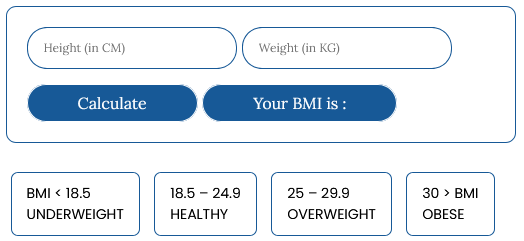
-
 Dr. Girish Juneja
Dr. Girish Juneja
- June 13, 2023
- 10:45 am
Unlocking The Secrets Of Bariatric Surgery How To Lose Weight And Keep It Off
Do you know!
Almost half of the world’s population faces obesity challenges today, and chances increase after the 30s. Obesity itself is not a disease but can lead to the onset of various chronic health diseases such as diabetes, hypertension, cardiac disease, arthritis, etc.
Bariatric surgery is quite a popular option for those struggling to lose weight and keep it off. But there’s still a lot of confusion about what results you can expect from this procedure.
In this article, we will discuss the effectiveness of bariatric surgery for weight loss and other health benefits associated with bariatric surgery.
So if you’re wondering if bariatric surgery is right for you, read on HERE!
What is bariatric surgery?
Bariatric surgery is a weight loss surgery that helps people lose weight by changing their digestive system. There are several bariatric surgeries, such as gastric bypass, sleeve gastronomy, and adjustable gastric band.
Let’s explore different types of bariatric surgery.
Types of bariatric surgery for weight loss
There are three primary types of bariatric surgery:
- Gastric bypass surgery: In this, the surgeon creates a small stomach pouch and directly attaches it to the small intestine bypassing the rest of the stomach & part of intestine . This allows patients to feel full sooner and absorb fewer calories.
- Sleeve gastrectomy: This type is the most common type of weight loss surgery removes a large portion of the stomach, leaving a narrow sleeve of the stomach. This reduces appetite and also decreases hunger hormones, leading to weight loss.
- Adjustable gastric banding: This type of surgery involves placing an adjustable band around the top part of the stomach to create a small pouch. The pouch size can be adjusted, which helps control food intake and hunger pangs and leads to weight loss.
Dr. Girish Juneja is a pioneer in bariatric and laparoscopic surgeries. After each bariatric surgery for weight loss, patients must follow a special diet, taking smaller meal portions and avoiding high-calorie foods to maintain results. Patients are also recommended to take supplements to avoid any nutritional deficiency.
Health benefits of bariatric surgery
The secrets of bariatric surgery are strongly associated with the following health benefits:
- Weight loss: Bariatric surgery can cause significant weight loss, which can, in turn, improve or resolve many obesity-related health conditions, such as diabetes, high blood pressure, sleep apnea, and joint pain.
- Improved self-image: Several patients who visit us choose bariatric surgeries for figure transformation. Bariatric surgeries aim to control diet, thereby causing significant weight loss.
- More active and conscious living: Bariatric surgery motivates you to a lifetime commitment towards a healthy and active lifestyle.
- Improved quality of life: Weight loss can improve your quality of life by increasing your energy levels, improving mobility, and reducing your risk for other health problems.
- Longer life expectancy: Obesity is associated with a shortened life expectancy. By losing weight through bariatric surgery, you may be able to increase your life expectancy.
Which is the best suitable for bariatric surgery for me: A comparison of procedures
There are three major bariatric surgeries. Dr. Girish will take a comprehensive assessment and consider various factors to suggest you the best suitable bariatric surgery for weight loss. Here is a crisp comparison of three bariatric surgeries to help you understand them better.
Gastric Bypass Gastric bypass involves creating a small stomach pouch that is attached directly to the small intestine after bypassing a loop of intestine . How does it work? The procedure allows food to bypass the rest of the stomach and intestines, which reduces the number of calories and nutrients absorbed by the body.
Who is recommended? Those whose body mass index (BMI) is 40 or above have extreme obesity and serious weight-related health problems, such as high BP, type-2 diabetes, and severe sleep apnea. | Sleeve Gastronomy Sleeve gastrectomy modifies size of stomach without cutting of bypassing intestine , it removes a portion of the stomach & make the stomach smaller like a sleeve or banana. How does it work? This limits food space in the stomach decreasing hunger hormones and appetite, which leads to weight loss. Who is recommended? Those with a minimum BMI of 35 with obesity related problems & with extreme obesity are recommended this. Typically, Gastric sleeve surgery is advised for people who have tried other weight loss methods and failed to achieve sustainable results. | Gastric Band Adjustable Gastric Banding (AGB) is a comparatively least invasive type of bariatric surgery. How does it work? A small band is placed around the top of the stomach to create a smaller stomach pouch. The opening can be adjusted over time to allow more or less food into the pouch, depending on weight loss goals. Who is recommended? The gastric band is a minimally invasive reversible surgery that can be recommended to those with 30-35 BMI; or who have tried non-surgical weight loss methods but have failed to achieve results; or who have a strong motivation to pursue lifestyle modification needed with the procedure. |
All three types of bariatric surgery are effective at helping people lose weight and improve their health.
How much weight loss can I expect from bariatric surgery?
If you are considering bariatric surgery, you may wonder how much weight you can expect to lose. While results will vary from person to person, most people can expect to lose a significant amount of weight following surgery.
Typically, most patients who approach bariatric surgery for weight loss can expect to lose up to 70% of their body fat within the one year of the surgery. However, some patients may have variable results. Dr. Girish will give you detailed insights about each bariatric surgery for weight loss.
What other things must I do to ensure weight loss with bariatric surgery?
To ensure that you lose weight with bariatric surgery, in addition to following your surgeon’s instructions, you must also:
- Eat a healthy diet including lean protein, fruits, vegetables, and whole grains.
- Avoid sugary and high-fat foods.
- Exercise regularly.
- Follow up with your surgeon and other health care providers as directed.
Dont Know Your BMI? Check it out HERE!
Body Mass Index denotes healthy body weight with respect to your height. We use a simple BMI calculator tool available at the bottom of our website, which looks like this-

We recommend you check with a doctor if your BMI is more than 25.
Wanting more clarity on what is bariatric surgery? Consult Dr. Girish Juneja and have a one-on-one discussion.
Dr. Girish Juneja, heading Weight Loss Dubai, has more than 30 years of intensive experience in bariatric and laparoscopic surgeries with an 85% patient satisfaction rate. Discuss which is the best suitable bariatric surgery for weight loss for you.

Dr. Girish Juneja

Dr. Girish Juneja
Related Posts







